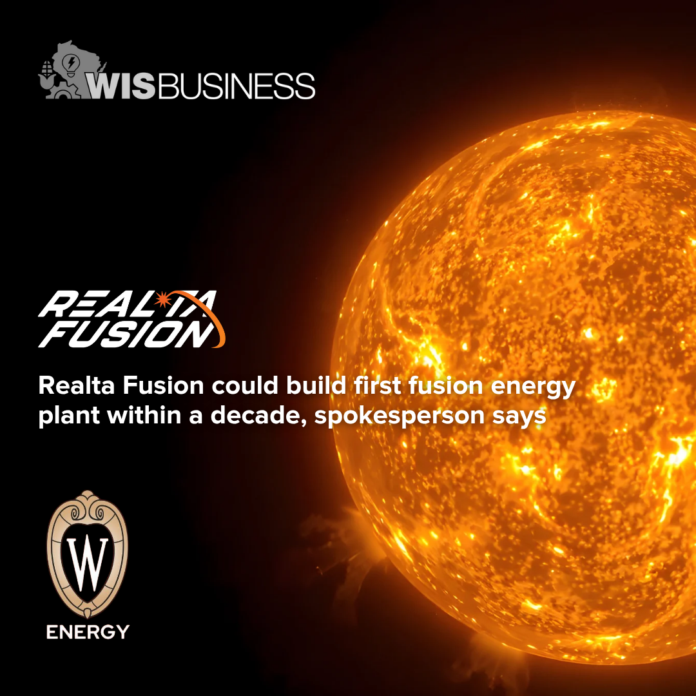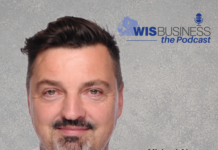Madison-based Realta Fusion could build its first energy-producing fusion plant within 10 years, though the path ahead has some challenges.
Robb Hughes, head of external affairs for the UW-Madison nuclear energy spinoff company, discussed this timeline during this week’s Wisconsin Energy Institute panel. He said the cost for energy produced by such a system would initially be “really high” due to it being a first-of-its-kind system. But over time, later iterations of these systems would be much more cost-competitive, he said.
“That cost never goes up, right, just keep building machines and all these prices just continue to go down the longer we exist,” he said. “That’s the hope at least.”
Still, he added the nuclear field advancing in this way isn’t inevitable, noting Realta Fusion alone will need to raise about $2 billion before it’s up and running. When looking at the global industry, that figure rises into the tens of billions, he said.
Meanwhile, external factors like availability of supply chain partners and skilled workers will also determine the future of this industry in Wisconsin, according to Hughes.
“Right now, the workforce for fusion is a lot of egghead plasma physicists and nuclear engineers, who I love, they’re wonderful. But in 10 years that’s going to be machinists and welders and plumbers and pipefitters,” he said. “We need to retrain people to do these kinds of activities … so that when we pop up in 10 years with what we hope is the world’s best fusion reactor, we have people to work at it.”
That’s just as important for the other companies needed to build specialized parts for the fusion projects Realta Fusion envisions, he added.
Hughes argued building the hardware needed for fusion power production is how “we can get this country back to making machines.” He said the Great Lakes region and Wisconsin in particular are uniquely positioned to support this type of manufacturing.
“It’s this huge opportunity for us to take advantage of this natural intellectual capital we have, and this history of building things in this state and supercharge that into the future,” he said.
This development is taking place against a backdrop of shifting public opinion, as historical fears about the dangers of nuclear accidents have waned in favor of renewed excitement about the technology. That’s according to Sen. Julian Bradley, R-Berlin, who chairs the Senate Committee on Utilities, Technology and Tourism.
“This is no longer a toxic or radioactive topic,” he said during the panel. “You can have a conversation and people don’t immediately worry about meltdown. They say, ‘Yeah that’s a good idea. We should be taking steps forward. We’d like to see our rates lowered.’”
Watch the video at WisconsinEye.







